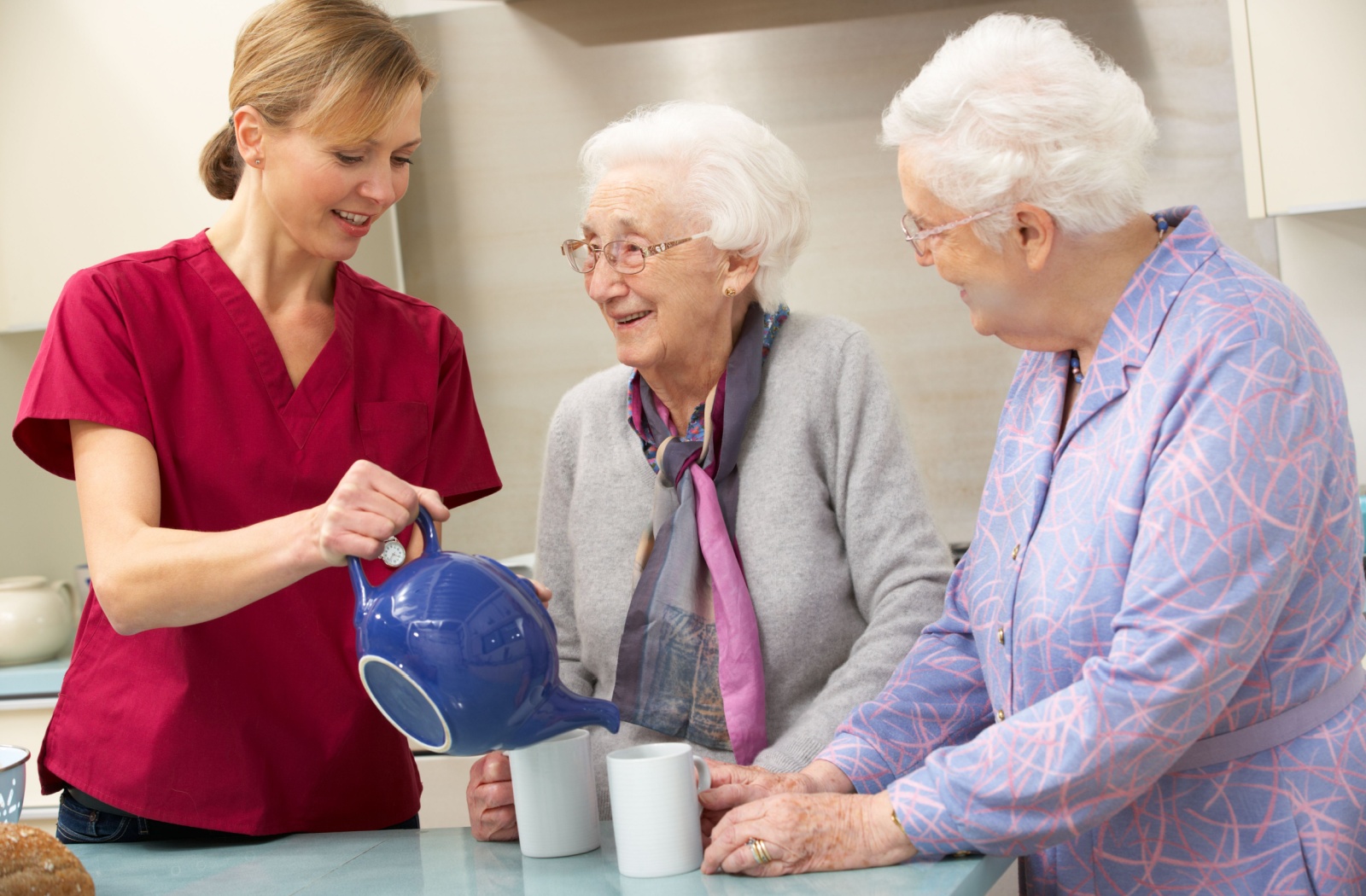Creating a Safe and Supportive Atmosphere for Alzheimer's Care
The development of a encouraging and risk-free environment for people with Alzheimer's is vital in enhancing their high quality of life. Exploring these complex strategies can reveal crucial insights into efficient caregiving methods that might change the day-to-day experiences of both caretakers and people.
Comprehending Alzheimer's Demands
Regularly, people with Alzheimer's disease exhibit a range of needs that require tailored approaches to care. As the condition progresses, cognitive decline materializes in different methods, affecting memory, thinking, and even the capability to do day-to-day activities. Caretakers have to identify these developing needs to supply appropriate support and ensure a better of life for those impacted.
One important facet of understanding Alzheimer's requirements is recognizing the value of routine and experience. Individuals usually find comfort in well established patterns, which can minimize anxiety and complication. Caretakers must strive to develop structured day-to-day routines that incorporate significant activities lined up with the person's passions and abilities.
In addition, efficient interaction is vital. Individuals with Alzheimer's may struggle to reveal themselves or comprehend intricate language. Caregivers need to employ basic, clear language, use non-verbal signs, and method energetic listening to foster understanding and link.
Caregivers ought to encourage engagement in area activities or family events, advertising a sense of belonging and objective. Understanding these varied demands is important for producing a supportive treatment environment.
Designing a Safe Home
Creating a secure home for individuals with Alzheimer's disease is crucial to reducing risks and advertising self-reliance. Make sure that pathways are well-lit and clear, as appropriate illumination lowers disorientation and boosts flexibility.
Integrating adaptive attributes is additionally critical. Mount grab bars in restrooms and near stairways, and think about using non-slip floor coverings in wet locations. Furthermore, making use of contrasting shades for floorings and walls can aid in differentiating spaces, assisting to mitigate confusion.
Knowledge is vital for individuals with Alzheimer's. Individualizing the environment with familiar objects and photos can strengthen a sense of belonging and protection - Alzheimers Care Charlotte. It is likewise beneficial to have actually a designated location for daily tasks, such as reading or crafting, which can provide structure to their day
Last but not least, executing a safe and secure outside space permits for secure expedition while getting in touch with nature. By attentively creating the home setting, caretakers can considerably improve the lifestyle for people coping with Alzheimer's disease.
Enhancing Communication Skills

Non-verbal interaction, including faces, gestures, and touch, plays an important function in communicating compassion and understanding. Preserving eye get in touch with and a calm attitude can improve the convenience level of the person, advertising a sense of safety.
In addition, it is necessary to practice energetic listening. This entails being completely present, showing perseverance, and enabling the person to express themselves without disruption. Repetition might be needed; caregivers need to be prepared to review topics or inquiries, as people with Alzheimer's may deal with memory recall.
Additionally, making use of aesthetic aids or signs, such as photos or familiar things, can assist in acknowledgment and interaction. Ultimately, improving interaction skills has to do with building trust fund and producing a setting where individuals really feel heard, valued, and comprehended, therefore enhancing their lifestyle.
Urging Social Interaction
Promoting purposeful social interactions can considerably enhance the well-being of people with Alzheimer's condition. Engaging with others not only assists fight sensations of isolation however likewise boosts cognitive function and emotional health and wellness. Structured social tasks, such as team crafts, arts and games, or music treatment, develop possibilities for locals to get in touch with peers and caregivers, which can lead to enhanced mood and minimized anxiety.
Creating an inviting atmosphere that motivates socialization is essential. This can be accomplished by setting up public spaces that facilitate interaction, such as comfortable seating areas or activity spaces. Furthermore, integrating acquainted and culturally pertinent tasks can trigger memories and urge engagement, permitting people with Alzheimer's to feel even more linked to their previous experiences.
Moreover, caretakers must be trained to identify and promote social interaction among citizens. By prioritizing social communication, we can substantially enrich the lives of those living with Alzheimer's, cultivating a sense of area and belonging.
Supporting Caretaker Wellness

To sustain caretakers, organizations need to offer routine training and academic sources to enhance their understanding of Alzheimer's disease and caregiving methods. Giving access to break treatment solutions allows caregivers to take required breaks, reducing stress and anxiety and fatigue - Alzheimers Care Charlotte. Furthermore, promoting an area via support groups can facilitate emotional sharing and the exchange of useful guidance among caregivers, creating a network of mutual support
Mental health resources, such as counseling services, can additionally be essential in addressing the emotional toll caregiving can take. By prioritizing caregiver health, we develop an even more lasting caregiving setting that not just benefits the caretakers themselves yet likewise improves the general high quality of care received by individuals with Alzheimer's. Ultimately, sustaining caretakers is an important component in promoting a thoughtful and effective care setting.
Conclusion
Finally, the development of a helpful and safe setting for people with Alzheimer's is necessary to improving their quality of life. By focusing on safety and security with thoughtful design, cultivating emotional well-being with acquainted elements, and advertising interaction through structured regimens, caregivers can significantly influence the overall article experience of those influenced by find this problem. Furthermore, sustaining caregiver well-being is vital, as it eventually contributes to an extra effective and thoughtful treatment environment.
Rep may be necessary; caretakers ought to be prepared to take another look at inquiries or topics, as people with Alzheimer's may battle with memory recall.
